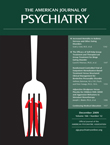In As You Like It, Jaques famously declaims:
All the world’s a stage,
And all the men and women merely players;
They have their exits and their entrances,
And one man in his time plays many parts,
His acts being seven ages.
A developmental unfolding of any person’s life, its sequential drama, and vicissitudes is then recounted, closing with:
Last scene of all,
That ends this strange eventful history,
Is second childishness and mere oblivion,
Sans teeth, sans eyes, sans taste, sans everything.
It is not for nothing that the deliverer of this soliloquy is known as melancholy Jaques.
Jonathan Bate, a professor of Renaissance literature at the University of Warwick, cleverly applies Jaques’s seven ages to Shakespeare’s life as the template for his biography. He brings new scholarship and insight to the somewhat fragmentary historical knowledge that we possess of the greatest genius in English literature. (Harold Bloom has aptly noted: “The more one reads and ponders the plays of Shakespeare, the more one realizes that the accurate stance toward them is one of awe. How he was possible, I cannot know, and after two decades of teaching little else, I find the enigma insoluble” [1].)
The hoary notion that Shakespeare was not the author of his own works is debunked by the extolling poem that Ben Jonson wrote for the preface of the First Folio of Shakespeare’s collected plays: “He was not of an age, but for all time!” and, further, was “the Soul of the age,” hence Bate’s title. A heartfelt accolade indeed from a great contemporary dramatist whom some have falsely asserted was the “true” author.
Bate documents Shakespeare’s relatively rigorous education, in particular his fluency in Latin, and his exposure to the classical writers Plutarch and Ovid, who would provide much source material for many of his plays. He promulgates provocative, albeit speculative, insights into Shakespeare’s nature and personal experience. For instance, sexuality: “all Shakespeare’s works—his tragedies as well as his comedies and poems are suffused with the language of sexual desire” (p. 390). “ Loves Labour’s Lost is a play packed with wit, elegance, philosophical reflection, and filthy jokes. For Shakespeare, love meant immersing oneself in all of these four dimensions” (p. 185). Bate notes the allure of one of Shakespeare’s great female characters, Cleopatra: (She) “is a grown-up Juliet: utterly confident in her body, she relishes her own sexuality and is the dominant partner in her relationship” (p. 398). Concerning “Sonnet 129”, Bate comments that it “could only have been written by someone who had experienced and thought hard about bodily desire, its fulfillment, and the self-disgust that follows after sexual climax” (p. 172). Syphilis was prevalent in 17th-century London, and Bate observes that Shakespeare is preoccupied with sexual disease in the plays written early in the reign of James the 1st, thus raising the possibility that Shakespeare himself suffered from “the pox,” which may have led to his early demise at age 53.
Shakespeare, the actor, company director, and playwright lived in a world where the theater existed side by side with a “bawdy” world of taverns, street crime, and brothels. As part of the legal system, there was a formal “bawdy court” that paralleled aspects of the theater. As Bate notes, “Women seem to have been more interested in having their complaint heard in (bawdy) court than obtaining judgment” (i.e., on issues of abandonment, infidelity, adultery, paternity, etc.). “Men were likely to want a result. Shakespeare’s plays resemble women’s cases more than men’s”(p. 168). There is the possibility that Shakespeare possessed some rudimentary legal education or considerable familiarity with these “bawdy” courts since legal issues figure prominently in a number of his plays, e.g., The Merchant of Venice .
In the end, however, the mind and life of William Shakespeare, despite Bate’s best efforts, remain elusive. A clever businessman, Shakespeare recognized that the managers were making all the money in the theater; hence he organized the Lord Chamberlain’s Men whereby the profits of performances would also go to the players (an Elizabethan precedent for our contemporary professional ballplayers). He also, through shrewd investments, left a considerable estate on his death. (These facts are all documented.) However, his activities in London and Stratford (when the plague closed the London theaters) remain somewhat mysterious. He probably preferred not to draw too much attention to himself given the fine line he walked between the radicalism of many of his plays and the political conservatism that surrounded him. It was politically deft to remain somewhat anonymous, which he seems to have done to the chagrin of later admirers and academics. Many playwrights of the period ended up in jail for works deemed “subversive.”
Bate’s account of what is known of Shakespeare’s life is perceptively placed in the turbulent cultural context of Elizabethan and Jacobean England—a dangerous, violent world filled with political conspiracies and riven with lethal sectarian battles where (as reflected in the history plays) the state’s authority was frequently under siege. (Shakespeare’s brilliant contemporary, the dramatist and sometime spy Kit Marlowe, was probably assassinated because he was thought to be an agent for political forces opposed to the government.)
This vivid portrayal of Shakespeare’s time is one of the great strengths of the book. It immerses us in a world that, though distant, contains many echoes that resonate with our own and thus enhances our appreciation and understanding of the sublime legacy that we have been bequeathed.

